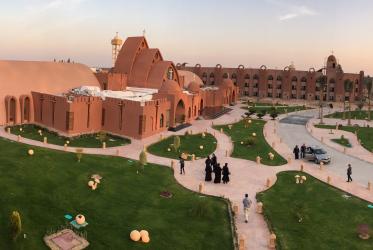by Metropolitan Geevarghese Coorilos
Introduction
Let me, at the very outset, greet you in the most precious name of the Holy Trinity.
I also greet you on behalf of the Commission on World Mission and Evangelism (CWME) and I should like to express my deep sense of gratitude to the Moderator of Faith and Order Commission, His Eminence Metropolitan Dr. Vasilios and to the Rev. Cannon John Gibaut, its Director for their kind invitation to be part of this meeting of the Plenary Commission. It is matter of immense satisfaction that the CWME and the Faith and Order, two of the foundational pillars of the World Council of Churches, have now entered into a period of collaborative work, which I hope will continue in the coming years.
I have been asked to make a brief response to the document “The Nature and Mission of the Church”, neither from the perspective of the CWME1, nor from my confessional perspective which is Orthodox, but from my regional contextual perspective which is Indian.
In a matter of 10-12 minutes, one could not possibly make a substantial response to a document that contains some profound ecclesiological and missiological insights. Therefore, for reasons of time, I shall confine myself to just one aspect of the NMC document that, in my perception, has some serious ramifications for our context in India. This, then, is a humble effort to respond to the call of the text itself which says:
Faith and Order invites Churches in different parts of the world to enrich this study with appropriate regional material to enable their congregations and church members to engage directly with themes which are necessarily expressed here in quite general terms.2
1 Commission on World Mission and Evangelism has already made an initial response to “The Nature and Mission of the Church” copies of which are available.
2 See “The Nature and Mission of the Church” , p.11.



